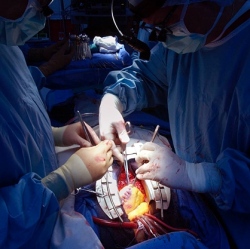
We are at the dawn of a new age of personalized medicine.
Just as Moore’s law transformed computing – and, as a result, all aspects of our professional and personal lives — so, too, will the interpretation of the human genome transform medicine. We are moving from the inefficient and experimental medicine of today towards the data-driven medicine of tomorrow. Soon, diagnosis, prognosis, treatment, and most importantly, prevention will be tailored to individuals’ genetic and phenotypic information.
As we enter the second decade of the 21st century, investments in molecular biology, bioinformatics, disease management and the unraveling of the human genome are all finally bearing fruit. Personalized medicine promises to revolutionize the practice of medicine, transform the global healthcare industry, and ultimately lead to longer and healthier lives.
The need for personalized therapies abound, as a recent WSJ article emphasizes. Right now, two of the immediate applications for personalized medicine are cancer diagnostics and newborn screening.
This year, over 580,000 Americans – 1,600 people per day – are expected to die of cancer. Similarly grim numbers can be found with newborn medical care: One in 20 babies born in the U.S. are admitted to the neonatal intensive care unit (NICU), and 20 percent of infant deaths are a result of congenital or chromosomal defects.
